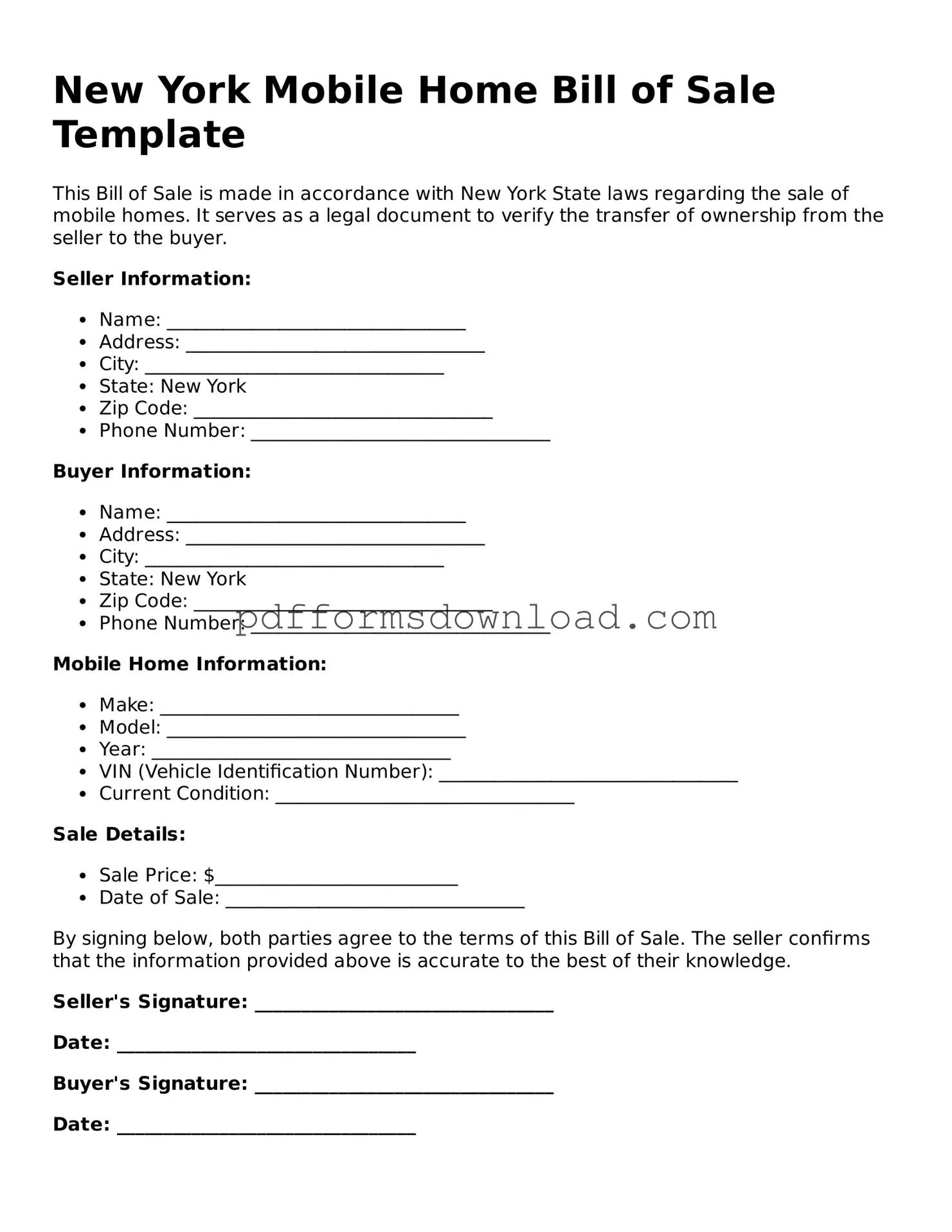What is a Mobile Home Bill of Sale?
A Mobile Home Bill of Sale is a legal document that records the sale of a mobile home. It includes important details about the transaction, such as the buyer, seller, purchase price, and the mobile home's identification information. This document serves as proof of ownership transfer from the seller to the buyer.
Why do I need a Mobile Home Bill of Sale?
This document is essential for protecting both the buyer and seller. It provides a clear record of the transaction and helps prevent disputes over ownership or terms of the sale. Additionally, it may be required for registering the mobile home with state authorities.
What information is included in the Mobile Home Bill of Sale?
The form typically includes the names and addresses of the buyer and seller, the mobile home's make, model, year, and Vehicle Identification Number (VIN). It also specifies the sale price and the date of the transaction. Any warranties or conditions of the sale may also be noted.
Is the Mobile Home Bill of Sale required by law in New York?
While it is not legally required to have a Bill of Sale for every mobile home transaction, it is highly recommended. Many buyers and sellers use it to ensure a smooth transfer of ownership and to meet any local registration requirements.
How do I complete a Mobile Home Bill of Sale?
To complete the form, fill in the necessary details such as the buyer's and seller's information, mobile home specifics, and the agreed-upon sale price. Both parties should sign and date the document to make it valid. It’s wise to keep a copy for your records.
Can I create my own Mobile Home Bill of Sale?
Yes, you can create your own Bill of Sale. However, it is important to include all necessary information to ensure it is legally binding. You may also find templates online that can help guide you through the process.
Do I need to notarize the Mobile Home Bill of Sale?
Notarization is not typically required for a Mobile Home Bill of Sale in New York. However, having the document notarized can add an extra layer of authenticity and may be beneficial if disputes arise in the future.
What should I do after completing the Mobile Home Bill of Sale?
After completing the Bill of Sale, both the buyer and seller should keep a signed copy for their records. The buyer may need to present this document to the local Department of Motor Vehicles (DMV) or other relevant authorities to register the mobile home in their name.
What if the mobile home has a lien on it?
If there is a lien on the mobile home, it’s crucial to address it before completing the sale. The seller should ensure that the lien is paid off or that the buyer is aware of it. The Bill of Sale should reflect any agreements regarding the lien to avoid future complications.
Where can I obtain a Mobile Home Bill of Sale form?
You can find Mobile Home Bill of Sale forms at office supply stores, online legal document services, or through local government websites. Ensure that the form you choose complies with New York state requirements.

